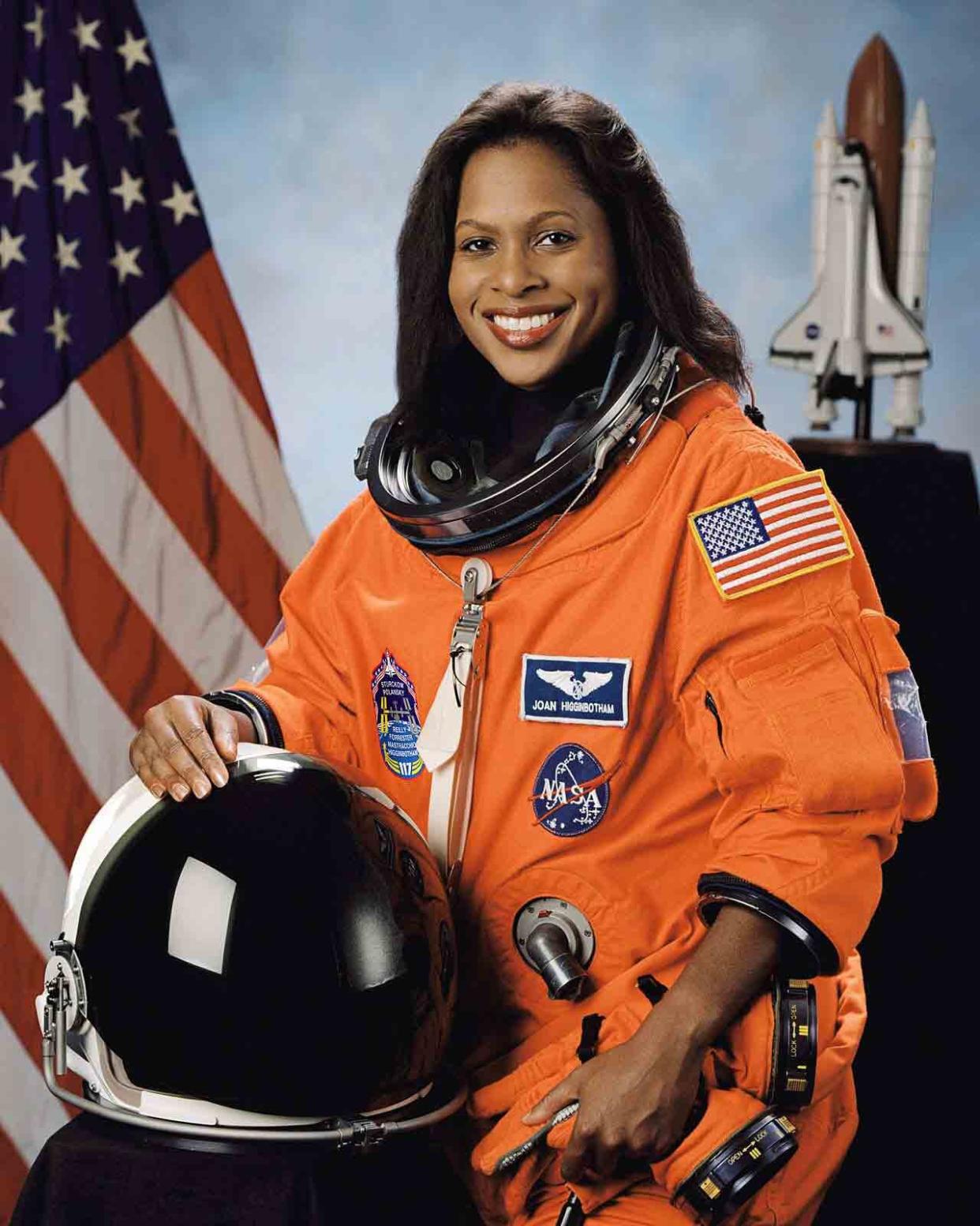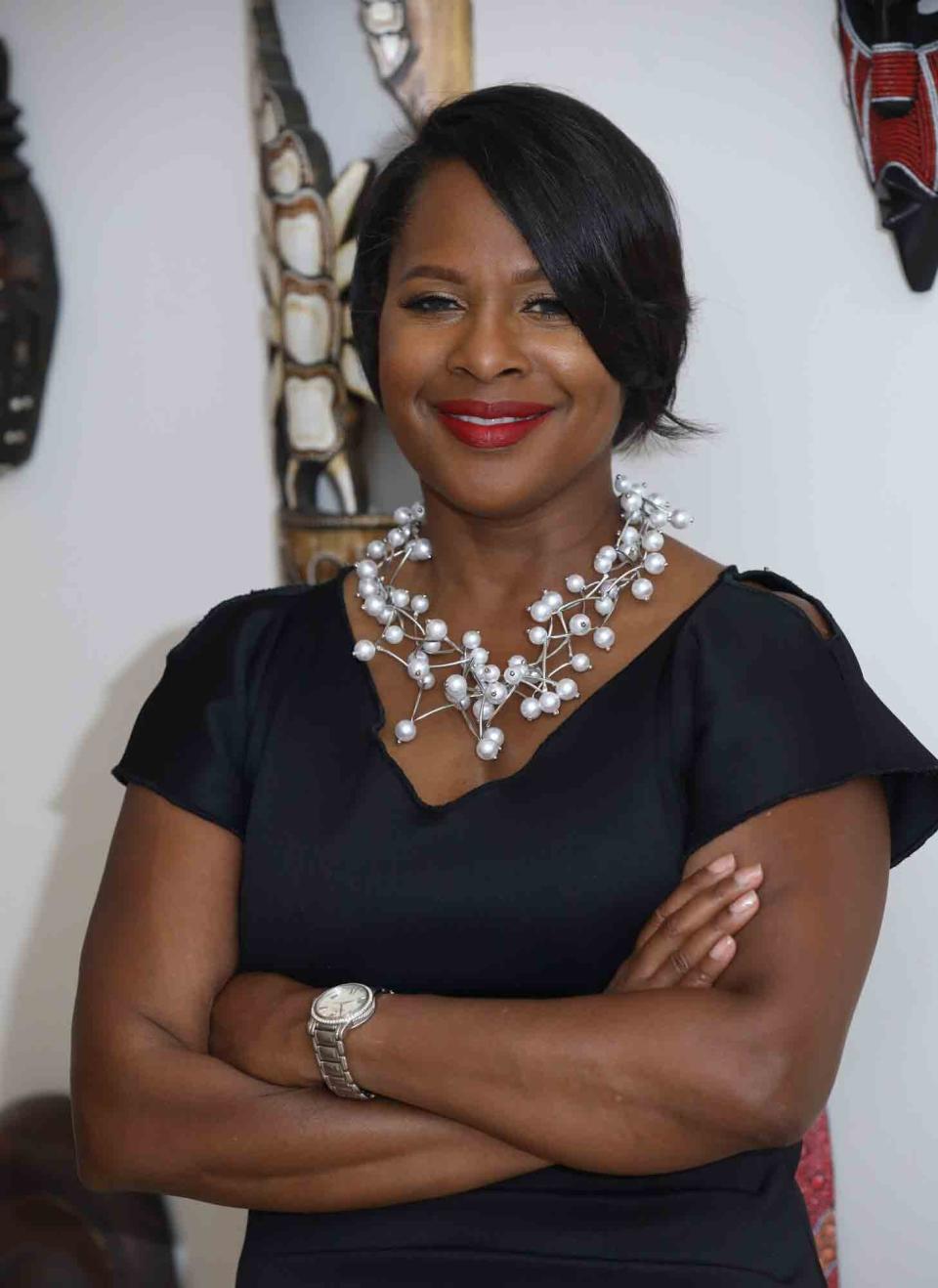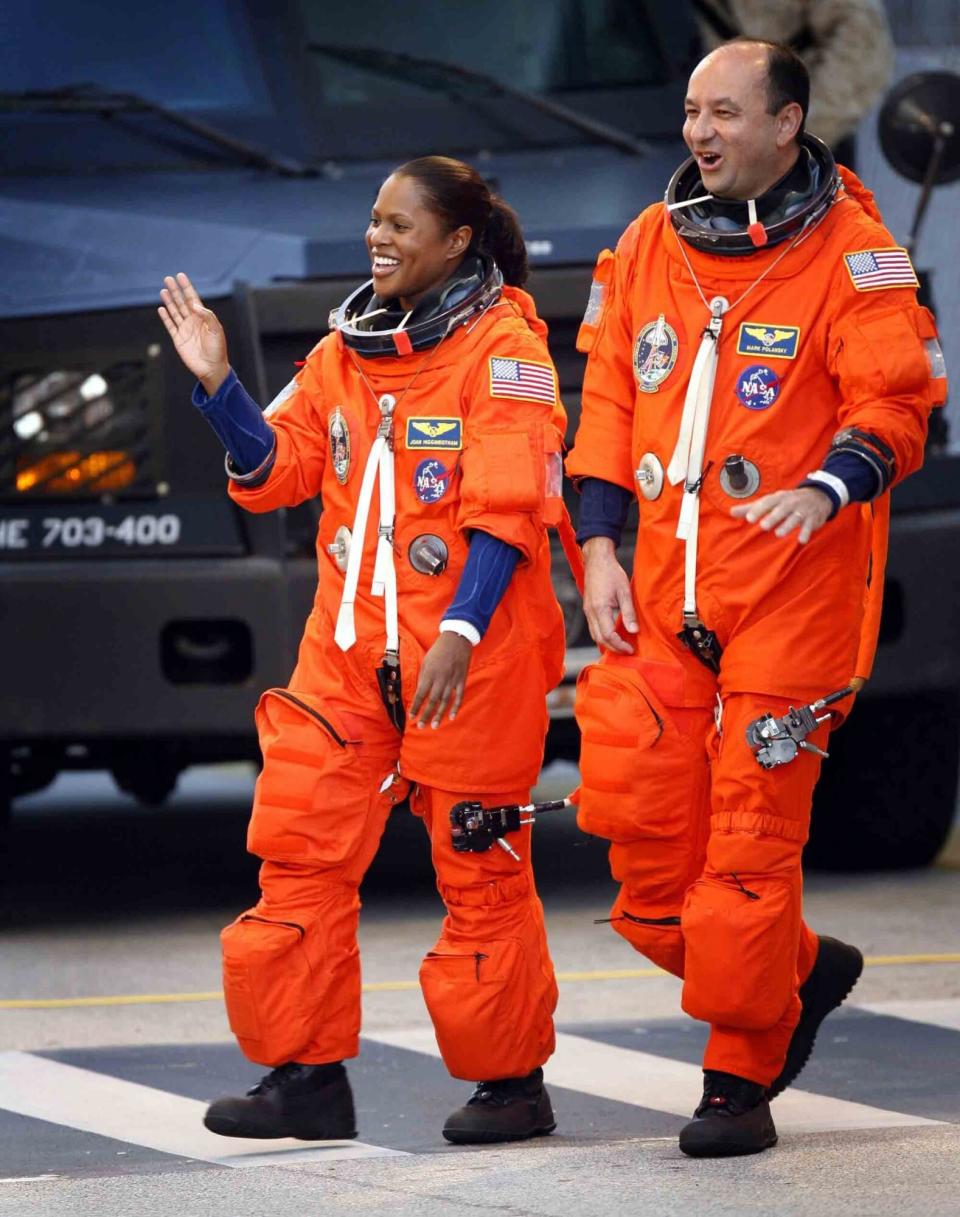Yes, You Still Need to Have a Beauty Routine in Outer Space

- Oops!Something went wrong.Please try again later.
Courtesy
Greetings, earthlings. I hope you all are well.
I'm writing to you from Kepler-452b, a beautiful exoplanet located in the constellation of Cygnus.
The weather here is gorgeous. It's 79 degrees Fahrenheit, the sun is shining, and there's a cool breeze rustling through the trees that bare fruit not unlike what you can find on planet Earth.
Oh, and one more thing: I'm obviously making all of this up (aside from the fact that Kepler-452b really does exist).
However, what is true is that aside from being a beauty editor, I'm a giant space nerd who, clearly, would love to visit any of the Kepler planets one day. I'm just waiting on scientists to figure out a way to squeeze a 1,400+ light year trip into a mere, you know, four to six hour journey. But lucky for me, I was able to quench some of my galactic thirst by chatting with Joan Higginbotham, a former NASA astronaut and literal Black girl magic personified.
Although her space days are now behind her, Higginbotham is going back to her NASA roots to help bring a new partnership with Tide to life, which aims help astronauts find a sustainable way to wash their clothes while on long space missions. The end goal is to be able to recycle the water, so it can be then used to drink — and if they can get it right, this is a process that could potentially be mimicked on earth.
"You don't get to wash clothes," the former astronaut shares with InStyle. "So for me, as someone who's just a little obsessed with cleanliness and hygiene, only being able to take three pairs of pants for a 12-day mission really sucked. We had to exercise 30 minutes a day, and on the Space Station, they exercise for about two hours. So on about the fourth day, those pants were starting to get a little gamey."
With no way to launder clothes, astronauts' only option is to hang their sweat-soaked clothes up to dry.
"You can't open a window," she laughs. "So there are real implications if you're doing a long mission. If you're at the Space Station, you can get a new supply of fresh clothes, but if you're going to Mars — which is nine months to a year one way — and you call down to Houston, they're like 'Yeah, I'll get those [new pants] to you in June 2022.' So that's not really going to work."
Outer space laundry days aside, I spoke to Higginbotham about her unconventional journey to becoming an astronaut, what that means for Black girls in STEM, her skincare routine in outer space, and whether or not she thinks humans can actually survive on another planet.
Ready to blastoff with us?
RELATED: The Astronauts From the Canceled All-Female Space Walk Are Still Breaking Records
What made you want to become an astronaut in the first place?
My journey to becoming an astronaut was not the one people normally take. I was alive when man landed on the moon, and so were many of my colleagues. They say "Oh, that changed my life" — that did nothing for me [laughs]. I didn't care, I don't even remember where I was. NASA wasn't something that was at the forefront of my mind. Long story short, I got my electrical engineering degree, and I was going to work for IBM because I had already worked for them before, however they weren't hiring engineers at the time. But NASA was recruiting, and this guy called me up and was like, "Hey, do you want to come launch space shuttles in Florida?" And I was like, "I... don't know." So I got to go down to Kennedy Space Center and I got to see the launch pads and I was like, "If these people are silly enough to let me work on this, I'm going to do that!" Then I applied to be an astronaut and got selected on my second go-round.
Tell me what was it was like to be in space and look back down on Earth. Does it put life into perspective?
You know what? It really does. It's incredibly humbling, because you look back down on the Earth and you're like I'm this big. It also made me realize how very fragile earth is. When you look at earth from space, you can actually see the atmosphere, which looks like it's about a millimeter thick. Obviously it's not, but you're now thinking this is the only thing that's saving us from extinction. So even if you're not a tree hugger, it makes you want to be a little bit more careful about how you treat Mother Earth. Thirdly, it made me really realize that we are all human beings and we need to treat each other as humans, despite all the differences in what we look like and what we subscribe to. We need to treat everybody like a person.

CapturedbyKevin/Kevin Douglas
Let's chat skincare in space. Did you notice any skin changes when you left Earth?
The one thing I did notice with my skin was that because we regulate the humidity — it's roughly 70% — it was dry. In Houston, it is very muggy and wet and my skin loved that. Hair, not so much, but my skin loved it. However, when we got up to space and started regulating the humidity, I noticed that my skin and my face — which is usually like an oil slick — became a little drier, so I would put on moisturizer a lot more. And my body just became like the Sahara desert, so I was using a lot of Vaseline and all that.
Did you have a morning and nighttime routine?
It was very minimalist because you only have so much space, and you can only take so much stuff. It wasn't like the full glam that I did this morning. It was a cleanser, Cetaphil is what I used, and a moisturizer — that was really it for the cleansing routine. In terms of makeup, I took some foundation, blush, mascara, and lipstick. We did a plethora of media things up there, and I was like, "Yeah, I need to have my game face on [laughs]." At night, I would put on a serum along with the moisturizer. It was really bare bones. They were really specific on what they would let us take, and out of all the women, I was the one who probably pushed the envelope a little more than the others.
Did you notice any difference in the texture or consistency of the products at all, or did they stay the same?
No, they really stayed the same. If you think about it, it's like being on an airplane, it's a regulated environment. Even in the way the products operated, everything stayed the same.
VIDEO: Watch the Whole Total Solar Eclipse in 4 Minutes
So now we're seeing a lot of space exploration happening outside of the NASA realm. What are your thoughts on that?
If you had asked me 10 years ago if anyone else aside from NASA would launch anything into space, I'd be like, "Oh please, never gonna happen." But it's been a neat partnership, this private/public partnership. So you have NASA, which is like the old, established company that's been doing this forever. Then you have these startups like Virgin Galactic and SpaceX that go through like six rockets a month. I think it's cool that they're coming in, because now it opens space up to more people and more people will get exposed to the things I did. I think that's only beneficial for the country.
Do you think humans will be able to live on another planet some day?
Is it going to be like Earth part two? I don't think so. But a small habitation or something? I think so. If I was a betting woman, I'd say maybe in two decades.
You think Mars?
Yeah. And they're trying to get to the moon in like 2030, so that's where all the experimentation will be done. If they do it and get it right on the moon, then they can take that model and use it on Mars.

Eliot J. Schechter/Getty Images
Let's bring things back down to Earth. What do you think your presence means to other Black women and women of color who want to become astronauts, but maybe aren't on the traditional path?
Representation is huge, and I'm a big advocate of "you can't be what you can't see." And maybe one of the reasons why I never thought about being an astronaut [originally] was because I didn't see anyone that looked like me. It wasn't even until the '80s when they actually started having women astronauts — so it wasn't even on my radar. I think it's so important to expose young kids to all the things they can be. It's huge and I don't take that lightly. I try to be very encouraging to kids, especially young girls of color, who want to go into any STEM fields. I'm like, "Sista go on, because if I can do this, you can certainly do this too."

